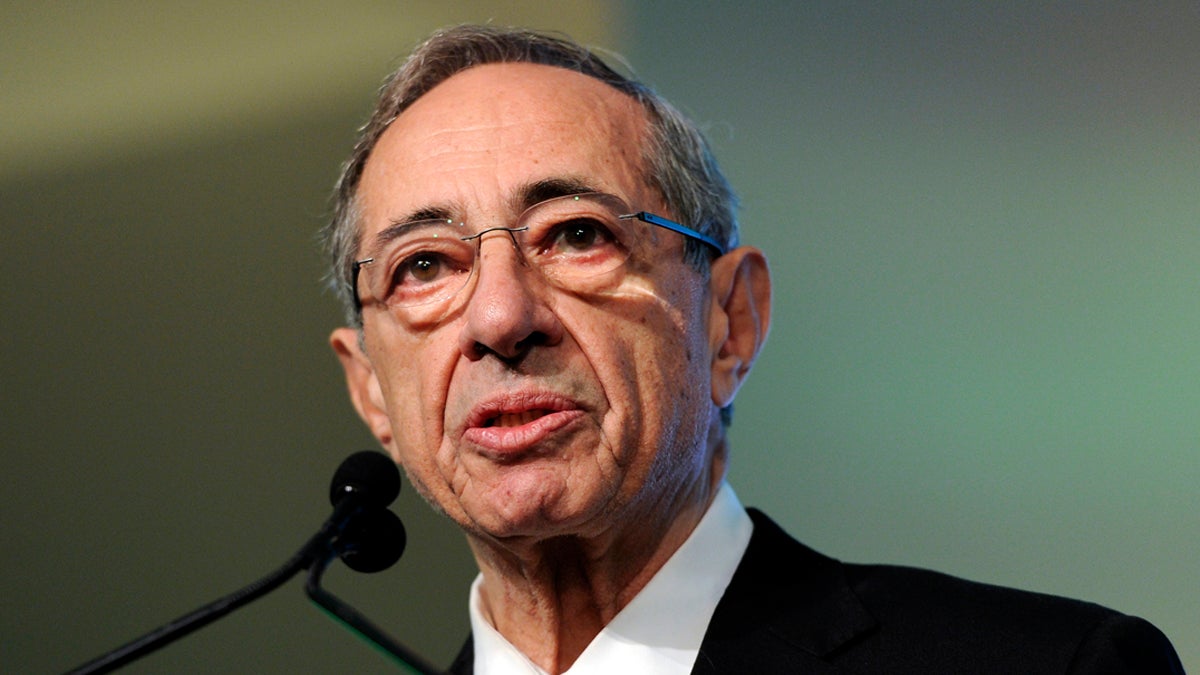Mario Cuomo: The poetry trumped the prose

Former New York Gov. Mario Cuomo on Tuesday, Oct. 18, 2011 in New York. (Evan Agostini/AP Photo)
In the wake of Mario Cuomo’s death, the chattersphere has been filled with heartfelt paens to the man’s fabled eloquence – most notably, his stirring address to the Democratic National Convention 30 years ago. What this means, however, is that the liberal icon’s political career peaked 30 years ago.
It’s a shame that we’ll never know what might have been.
Cuomo, who died yesterday at 82, talked a great game about government’s vital role, the importance of the social compact, and the Democratic party’s traditional mission (“We believe we must be the family of America, recognizing that at the heart of the matter we are bound one to another”), and he preached it during the Reagan era when down-and-out Democrats most needed to hear it. But in 1988 and 1992, when his party needed him to convert his message into action, to take the lead as the presidential nominee, he refused to step up.
Of course, that was his prerogative. He wasn’t required to seek the highest rung on the ladder. He once said, “I don’t have that great vacuum in my psyche that feels I have to keep going up,” and I get that.
Maybe Cuomo was so secure that he didn’t need the ultimate validation. Maybe he just liked being governor of New York (he served three terms). Maybe he had the soul of an outsider and lacked the requisite inner fire (that’s the most popular theory about the guy). Maybe he feared that a presidential bid would expose his family to hideous rumor-mongering (like this, circa 1987). Maybe he feared, in that dominant Republican era, that his liberal credo wouldn’t sell on the general-election trail.
OK, fine. But in the end, it’s not enough to talk the talk. You’ve got to walk the walk.
Cuomo’s 1984 convention speech galvanized his fellow Democrats much the way Barack Obama’s 2004 convention speech galvanized his fellow Democrats. Rhetorically, Cuomo was the Obama of that bygone era – the same gift for making politics sound like poetry. But the difference was, Obama took his poetry to the next level, to convert his words into action.
In Cuomo’s ’84 speech, he ridiculed President Reagan’s characterization of America as a shining city on a hill: “There is despair, Mr. President, in the faces that you don’t see, in the places that you don’t visit in your shining city….Maybe, Mr. President, if you visited some more places; maybe if you went to Appalachia where some people still live in sheds; maybe if you went to Lackawanna where thousands of unemployed steel workers wonder why we subsidize foreign steel…maybe, Mr. President, if you asked a woman who had been denied the help she needed to feed her children because you said you needed the money for a tax break for a millionaire….” And so on.
Good partisan grist. But here’s the important thing:
Reagan, at least, had the stones to step up to the big time. Reagan first galvanized his fellow Republicans with an election-eve TV appeal for Barry Goldwater, in a losing cause, in 1964. Reagan then sought to convert his words into action. He made a late bid for the presidential nomination in 1968. He tried again, and almost pulled it off, in 1976. He finally succeeded in 1980. He believed so deeply in conservatism that he put his shoulder to the wheel and moved history. Cuomo just whiffed.
I suppose that sounds harsh, given that he’s newly gone. But in politics, you either seize the moment – or you don’t. Mario Cuomo famously said, “You campaign in poetry, you govern in prose.” Another beautifully lyrical line. But to move history, as Reagan and Obama have done, you need the prose as well as the poetry.
Follow me on Twitter, @dickpolman1, and on Facebook.
WHYY is your source for fact-based, in-depth journalism and information. As a nonprofit organization, we rely on financial support from readers like you. Please give today.

